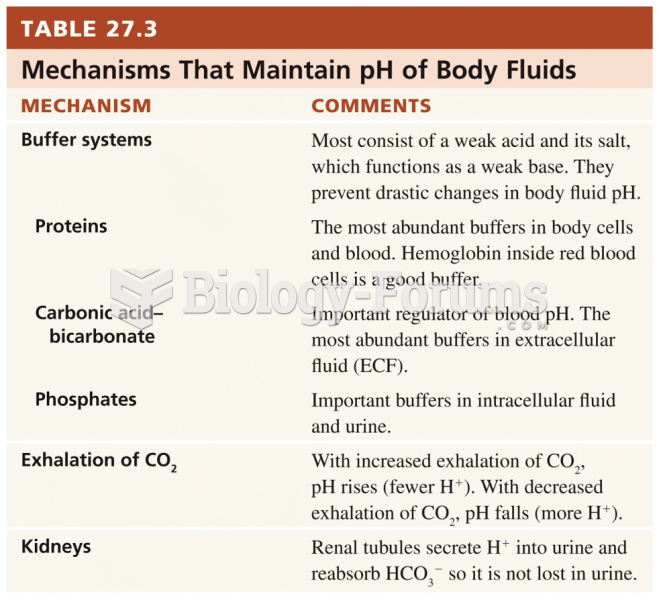Answer to Question 1
3,4
Rationale 1: Since there are many side effects to antiepileptic medications, single drug therapy is the goal for pregnant patients.
Rationale 2: Women who have epilepsy have a reduced fertility rate, and some do not ovulate.
Rationale 3: Valproic acid (Depakene) is Pregnancy Category D.
Rationale 4: Folic acid supplementation is important for all women who are, or wish to become, pregnant. This is especially true of women who are epileptic because many antiepileptic medications cause folic acid deficiency.
Rationale 5: Women who are epileptic can and do conceive and deliver healthy babies. The nurse should not discourage this patient but should provide information to the patient and then support the patient's choice.
Global Rationale: Valproic acid (Depakene) is Pregnancy Category D. Folic acid supplementation is important for all women who are, or wish to become, pregnant. This is especially true of women who are epileptic because many antiepileptic medications cause folic acid deficiency. Since there are many side effects to antiepileptic medications, single drug therapy is the goal for pregnant patients. Women who have epilepsy have a reduced fertility rate, and some do not ovulate. Women who are epileptic can and do conceive and deliver healthy babies. The nurse should not discourage this patient but should provide information to the patient and then support the patient's choice.
Answer to Question 2
1
Rationale 1: The primary means by which antianginal drugs terminate an acute angina episode, or decrease the frequency of angina episodes, is by reducing the myocardial demand for oxygen.
Rationale 2: Antianginal medications do not have an anticoagulant effect.
Rationale 3: Antianginal medications cannot increase the oxygen supply to the myocardium.
Rationale 4: Antianginal medications do not increase nitric acid production.
Global Rationale: The primary means by which antianginal drugs terminate an acute angina episode, or decrease the frequency of angina episodes, is by reducing the myocardial demand for oxygen. Antianginal medications cannot increase the oxygen supply to the myocardium. Antianginal medications do not have an anticoagulant effect. Antianginal medications do not increase nitric acid production.







